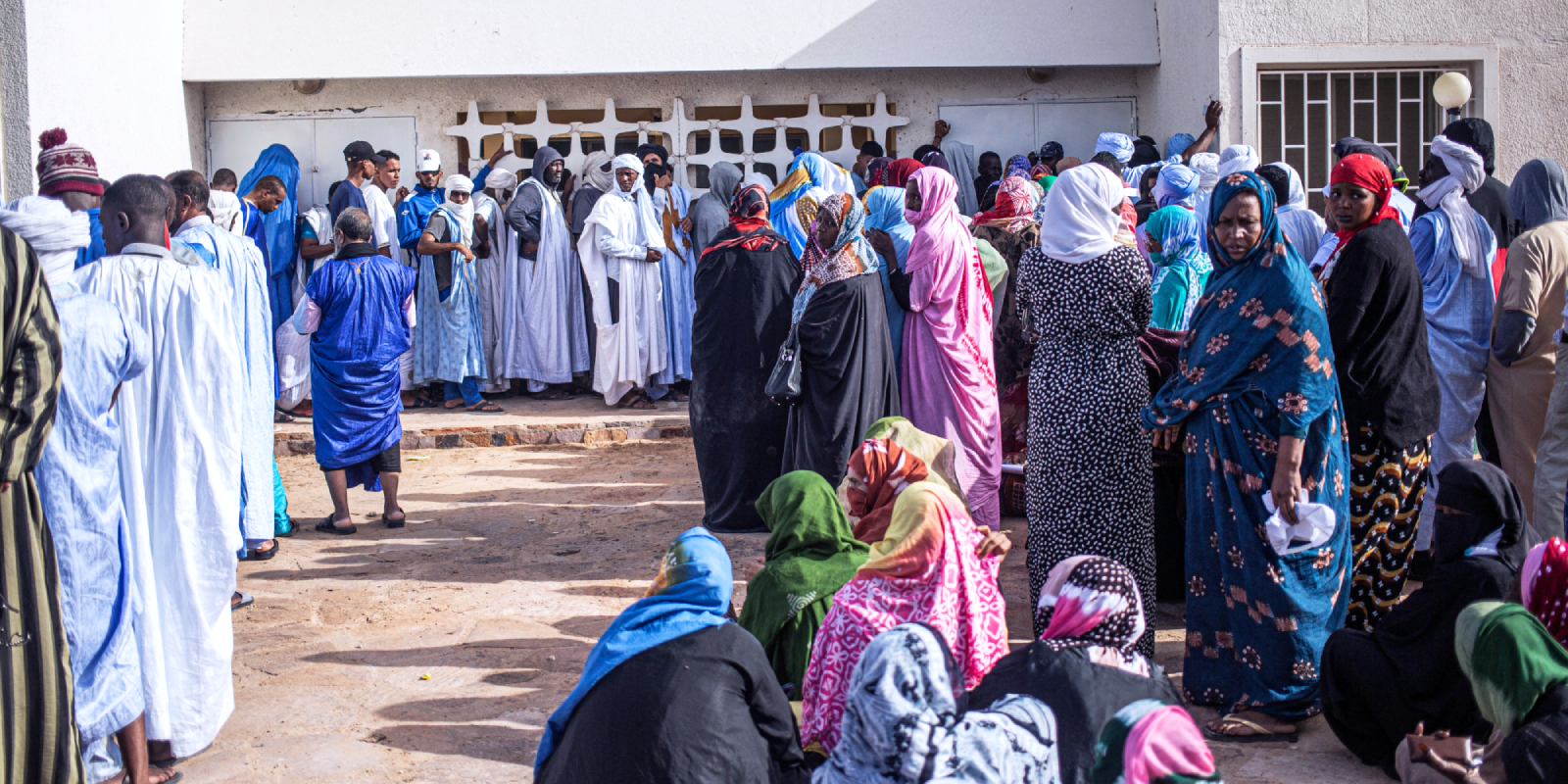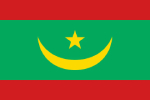President Mohamed Ould Cheikh Ghazouani is contesting for a second and final 5-year term in Mauritania’s presidential election.
Mauritania has been on a gradual path of political openness since 2019.
Mauritania has been on a gradual path of political openness since 2019, when President Mohamed Ould Abdel Aziz respected term limits and stepped down from the presidency. President Aziz’s departure from office represented the first peaceful transfer in power in Mauritania’s history, particularly notable since he came to power in a 2008 coup. Ghazouani, Aziz’s hand-picked successor and former Chief of Staff of the Armed Forces, won the 2019 polls with 52 percent of the vote.
Mauritania has a long legacy of military coups and authoritarian governance, resulting in a string of military or military-backed governments since 1978.
It is from this starting point that Mauritania is building a relatively more pluralistic and accountable political system. Beyond the presidential election, the focus will be on whether this country of 4.5 million people can maintain momentum for reform. Key will be creating sufficient checks and balances to ensure parameters (such as term limits) are maintained, given Mauritania’s legacy of unrestrained executive authority.
In the May 2023 legislative elections contested by 25 parties, Ghazouani’s Insaf party captured 107 of the 176 seats, the Islamist party, Tawassoul, won 11, and the Union for Democracy and Progress party took 10. The election also saw a new opposition coalition of independent and human rights groups organize around the Joud party.
A proportional representation system based on national, tribal, and parliamentary lists—adopted with input from opposition parties in 2022—has increased minority group representation.
The Independent National Electoral Commission was reformulated in 2022 and is now seen as more impartial. In 2023, Insaf and leading opposition parties agreed to a Charter of National Understanding regarding principles of national unity, political, and economic governance. Most Mauritanian political parties, nonetheless, are weak and lack the organizational capacity or resources to mount national campaigns.

Voters wait at a polling station in Nouakchott, Mauritania on May 13, 2023. (Photo: AFP/Med Lemine Rajel)
While most opposition parties have yet to name their standard bearers, a notable likely presidential contender is Biram Dah Abeid, an antislavery advocate who has been jailed for his advocacy. Abeid polled second, with 19 percent of the vote, in the 2019 presidential election. Mauritania only officially outlawed slavery in 1981, the last country in the world to do so, though the practice persists today.
There is a relatively open media environment, though criticism of the ruling party can lead to harassment and arrest.
Corruption has historically been an issue in Mauritania. While marginal progress has been made in recent years, there are concerns that Ghazouani uses anticorruption measures to target political opponents. This includes a case against Ghazouani’s former patron, Ould Abdel Aziz, who was convicted of corruption charges and sentenced to 5 years in prison in a special anticorruption court in December 2023. Mauritanian courts, meanwhile, remain subject to pressure from the executive branch.
How Mauritania manages its expanding political space and the strengthening of independent institutions will be key measures to watch.
The escalating militant Islamist violence in Mali, which is expanding westward, poses a growing security threat for Mauritania. There were several security incidents on the border in 2023, and Mauritania currently hosts more than 100,000 refugees fleeing the violence.
Mauritania suffered from persistent violent extremist organization (VEO) threats in the 2000’s. However, Mauritania is widely credited with having mounted an effective counter-VEO campaign involving improved military professionalism, strengthened intelligence and surveillance capabilities, and proactive counter-radicalization outreach at the community level. These efforts are likely to be further tested in 2024.
Investments by BP and Kosmos Energy in the Greater Tortue Ahmeyim natural gas pipeline will enable Mauritania to supply Europe and other global markets. Mauritania is also a key investment target for green hydrogen, including from the United Arab Emirates. Mauritania’s vast territory and availability of solar and wind energy put it in line to produce 8 million metric tons of green hydrogen annually—making Mauritania an increasingly important energy hub.
Beyond the conduct of the election, how Mauritania manages its expanding political space and the strengthening of independent institutions like the judiciary and election commission, will be key measures to watch in 2024.


 Mauritania: June 29
Mauritania: June 29